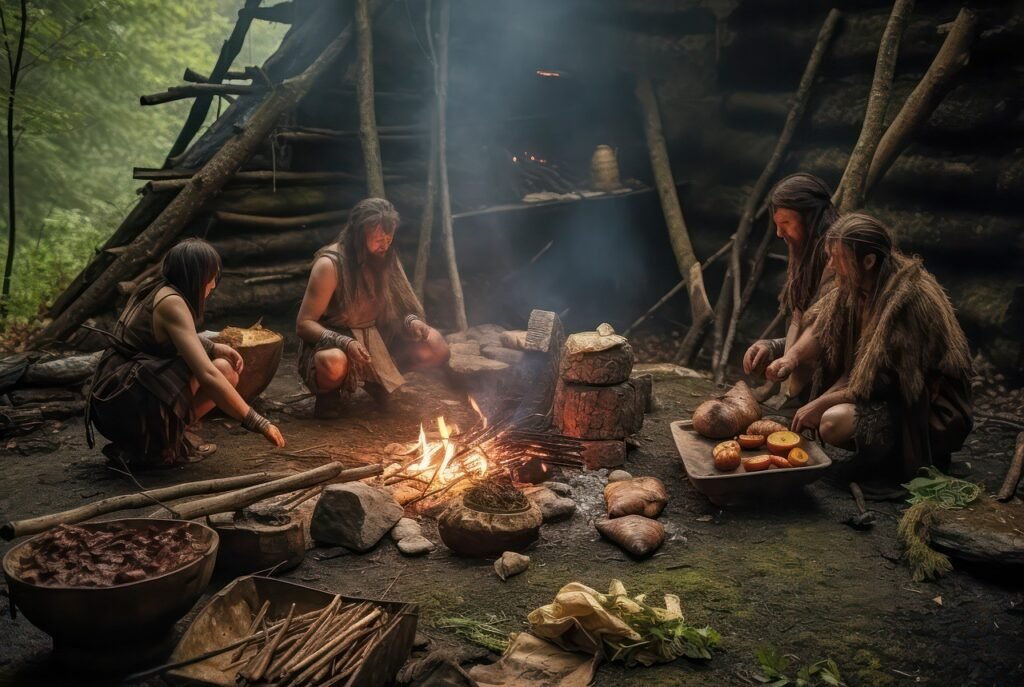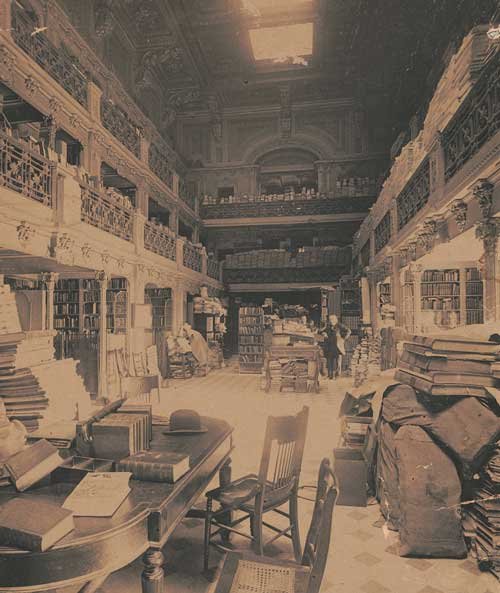A library is a social institution. It originated as a product of the thinking of a civilized and educated society. The library was born to meet the overall needs of society. Let’s first address a few basic ideas about society before moving on to the history and evolution of the library within it.
Society:
From the beginning of creation, people were very helpless. All people used to oppress and plunder the weak. Human beings felt the necessity of unity in order to protect themselves from the attacks of violent animals, animal hunting, and the dire adversities of nature without self-conflict. From the basis of this unity, people gradually formed society.

The ideas of Cote -Spencer and Darwinian social science about primitive, medieval and modern era are very important in the field of origin and development of society.
Let’s talk about the origin and evolution in Libraries in society-
As people become socialized and get to know each other, they are encouraged to know and understand their environment. Libraries enter society gradually as people move up the civilizational ladder to meet their own requirements.

From the beginning of human civilization, people began to collect written documents in a logical order and arrange them to be stored in museums or libraries.
- Temple collection: The first thing that springs to mind when discussing the founding of a library is the temple collection. The collection started out in the temple at Uppsala and included volumes on religion, religious ceremonies and their scriptural protocols, the lives of gods and goddesses, and the sermons of prominent religious figures and missionaries.

Primitive people considered it best to keep any work related to religion in a sacred place dedicated to worship. Thus, temple collections in Egypt, Mesopotamia, Samaria, Assyria, Palestine, Babylon, Greece, China, and Rome are very important. Indeed, these provide strong groundwork for the construction of seal libraries.
- Government Archives: The second important level of library collection is government documents. The creation of librarians was said to be the royal necessity of issuing decrees to carry out government activities, determining and collecting government revenue and expenditure, and recording the history of defeats.

In this way, the military history of the country, the partial wars fought for the sake of the country, the genealogical history of the kings, and various other types of collections grew into books.
- Business Documents: People become realists when countries and nations progress towards progress. They went into business. Besides, trade has a special influence on social life. Where communication is good, relatively densely populated business establishments develop rapidly.

For the promotion of trade and commerce, the exchange of goods and the transactions recorded, sometimes for governmental and sometimes for commercial reasons, there is a need to properly preserve the documents, and therefore libraries are created.
- Family collection: In the past, family or genealogical collections have played an important role in preserving and entertaining options in libraries. .

History books provide us with a wealth of information about royal genealogy that dates back to a time when paper was formed. We might not be aware of the existence of the Library of Alexandria, which was constructed in 283 BC by Ptolemy II, the son of Emperor Ptolemy, if these documents had not been saved in family collections. This library was considered the greatest library in the world at that time,, which would have remained unknown.
To meet the needs of people, libraries have evolved into today’s modern digital libraries.
Libraries are the center of education culture and civilization in society:
Libraries are essential for education, giving people access to a wide range of knowledge to support learning throughout their lives. They also serve as cultural centers, preserving and promoting the history and heritage of communities. Libraries offer diverse resources, including books, journals, and digital media, to meet different learning needs and preferences. They play a crucial role in promoting literacy, encouraging reading, and supporting academic success. Libraries provide a space for intellectual engagement and community activities, making them welcoming for people of all ages and backgrounds. Through various programs and workshops, they help develop skills and foster personal growth. By offering free access to information, libraries promote equality and help bridge the digital divide. Additionally, they support research and innovation by providing valuable resources and expertise. By preserving rare manuscripts and historical documents, libraries protect the cultural and intellectual heritage of society. Ultimately, libraries contribute to the social, educational, and cultural advancement of communities while embodying the principles of knowledge sharing and public service.
Library is a socio-cultural and democratic institution of society:
Libraries are socio-cultural establishments that uphold democratic principles by guaranteeing that all individuals have equal access to information. They act as gathering places for the community, bringing together individuals from all walks of life to exchange ideas and learn. Libraries assist in closing socioeconomic disparities and promoting lifelong learning by providing free access to a variety of materials and educational initiatives. As a reflection of the past and variety of their communities, they protect and promote cultural heritage. Libraries support privacy and intellectual freedom, enabling people to research topics and make educated decisions—elements of a democratic society.
Interrelationship of society and library
The role of the library in guiding society in the right direction is undeniable. In the development of the human mentality of society and for new trends and creative work, modern libraries of high quality are needed. In the present world, without information, no doctor, engineer, scientist or literary person can create anything creative, and this information collection can be preserved. Doing research work can encourage doing new research. Library is not only the center of cultural improvement but also the key of social development. The librarian carries the current and past history of the society. The development of the above library is also fully dependent on the improvement.
As a result, society and libraries are mutually dependent and complimentary to one another, enabling the other to flourish. Thus, society and libraries both have a unique impact on human life.



